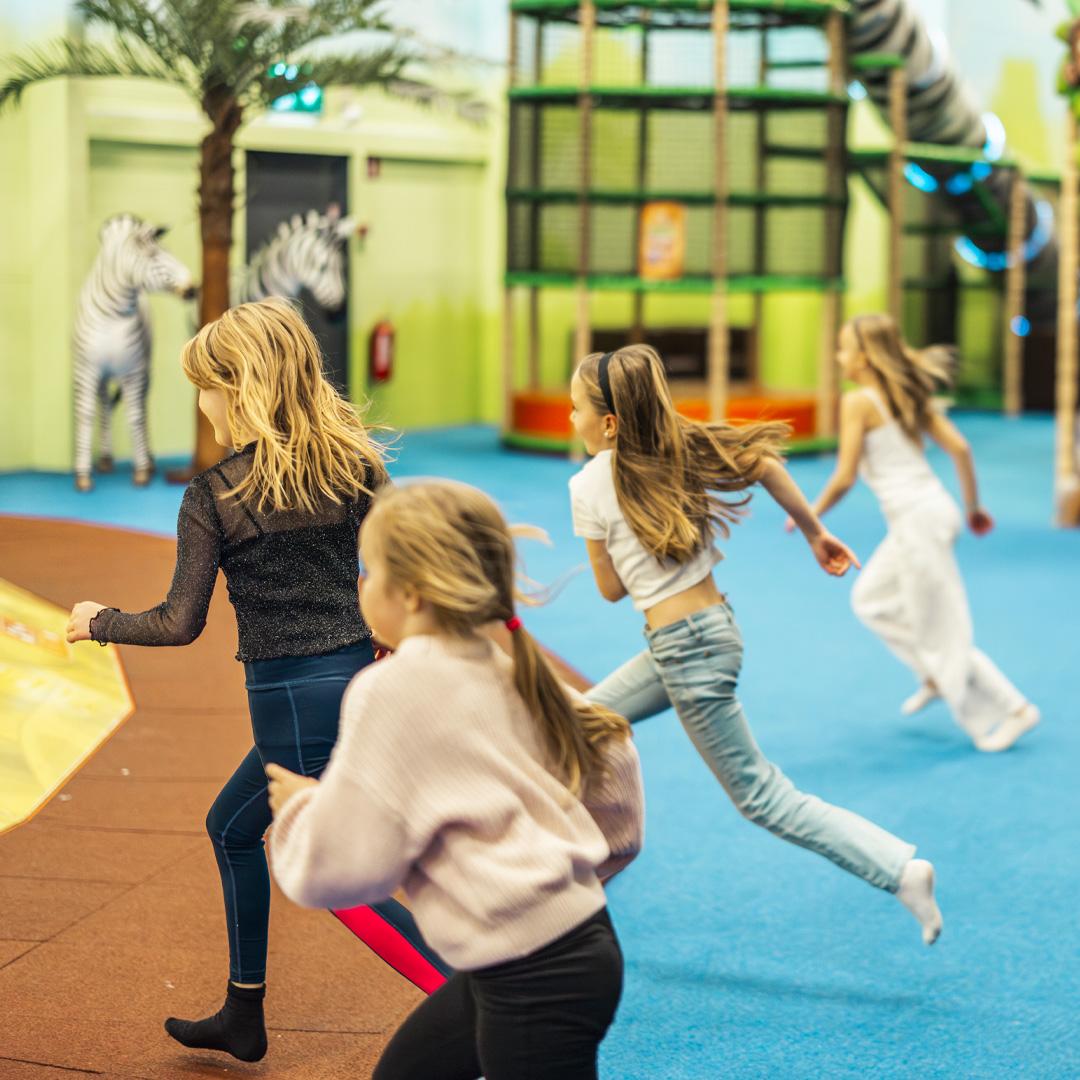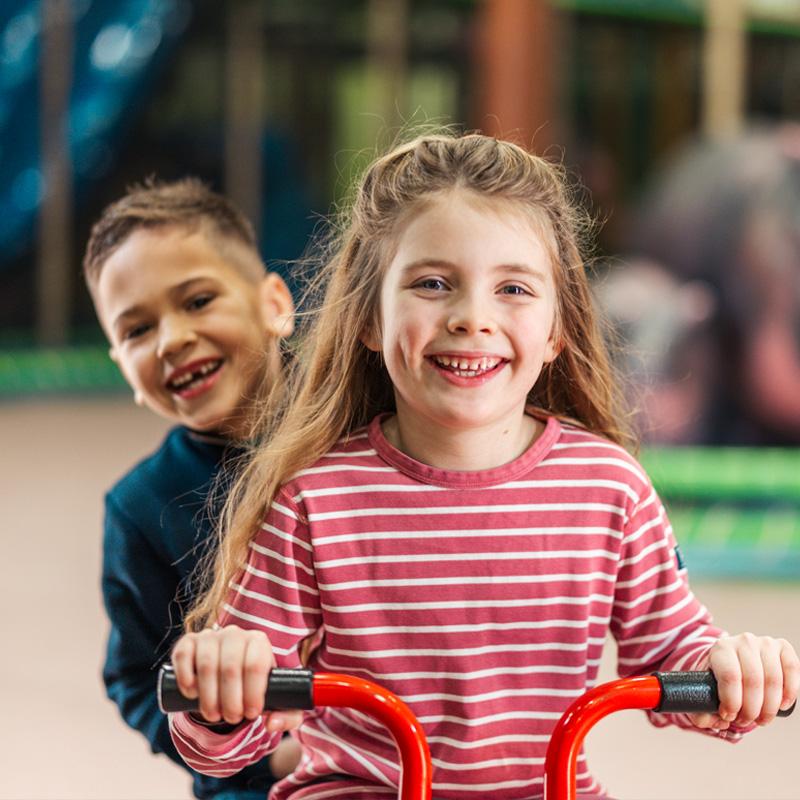Play and movement
Published 2025-06-18
Kids don’t need gyms or workout plans. A pillow on the floor, a friend to chase, or a great slide is all it takes. Movement comes naturally to children – and when it’s mixed with play, something magical happens. Bodies and brains get exactly what they need.
Movement is just as important as sleep and nutrition. It strengthens the body, develops motor skills, supports learning, and helps kids manage emotions. And the best part? They often don’t even realize they’re moving – because it just feels like play. When feet are flying and giggles echo, you know something good is happening.
Movement Matters More Than Ever
Leo’s Playland’s play and movement report* reveals an alarming trend: only two in ten children reach the recommended amount of daily physical activity. What’s more, 40% of parents say their kids play less than they did at the same age.
Less play is also affecting kids’ motor skills. A full 27% of parents say their children struggle with basic movements like balancing or doing somersaults – skills that earlier generations picked up naturally through play.
And the lack of movement doesn’t only impact the body – it affects focus, emotional regulation, and overall joy. That’s why daily movement is so essential. The good news? It doesn’t have to be structured or serious. Everyday play – running, jumping, climbing, spinning – is more than enough.





